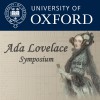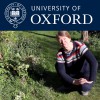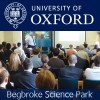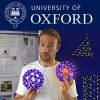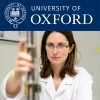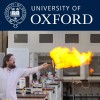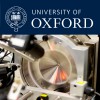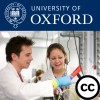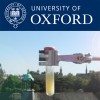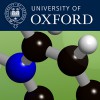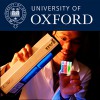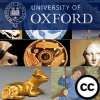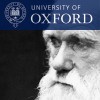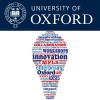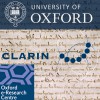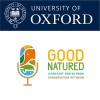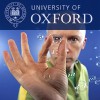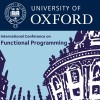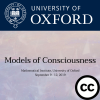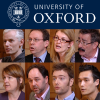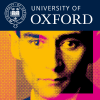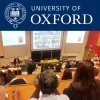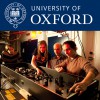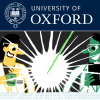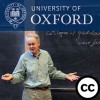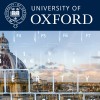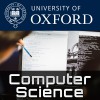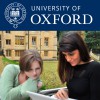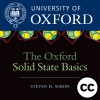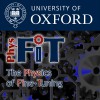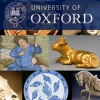Mathematical, Physical and Life Sciences (MPLS)

Relevant Links
The Mathematical, Physical and Life Sciences (MPLS) Division is one of the four academic divisions of the University of Oxford. We have over 6,000 students and research staff, and generate over half of our funding from external research grants.
The MPLS Division's 10 departments and 3 interdisciplinary units span the full spectrum of the mathematical, computational, physical, engineering and life sciences, and undertake both fundamental research and cutting-edge applied work. Our research addresses major societal and technological challenges and is increasingly interdisciplinary in nature. We collaborate closely with colleagues in Oxford across the medical sciences, social sciences and humanities.
Today's scientific research not only crosses traditional subject boundaries, but also transcends national boundaries: MPLS scientists collaborate with researchers from around the world, and play leading roles in many international projects.
Series associated with Mathematical, Physical and Life Sciences (MPLS)
| # | Episode Title | Description | People | Date | |
|---|---|---|---|---|---|
| 883 | Roger Penrose in conversation with Hannah Fry - Oxford Mathematics Public Lectures | In our Oxford Mathematics London Public Lecture Roger Penrose in conversation with Hannah Fry reveals his latest research, a veritable chain reaction of universes, which he says has been backed by evidence of events that took place before the Big Bang. | Roger Penrose, Hannah Fry | 06 Nov 2018 | |
| 882 | The Search for Life on Earth, In Space and Time | Dr James Green, current Chief Scientist of NASA gives a talk on the how life may be distributed on Earth and in the Solar System with consideration of the age of our sun. | James Green | 29 Oct 2018 | |
| 881 | Oxford Mathematics and the Clay Mathematics Institute Public Lectures: Roger Penrose - Eschermatics | In this lecture Roger Penrose uses M.C Escher's work to illustrate and explain important mathematical ideas and their connections to the visual arts. | Roger Penrose | 01 Oct 2018 | |
| 880 | An Outdoor Pause: Skipping Stones, Splashes (and some tea to conclude) | The 6th and final session of the Hinshelwood 2018 chemistry lecture series | Lydéric Bocquet | 20 Sep 2018 | |
| 879 | Ski Friction and the Alchemy of Waxing | The 5th session of the 2018 Hinshelwood lecture series | Lydéric Bocquet | 20 Sep 2018 | |
| 878 | John Ball in conversation with Alain Goriely | John Ball is retiring as Sedleian Professor of Natural Philosophy, Oxford oldest Scientific Chair. In this interview he charts the journey of the Applied Mathematician.as the subject has developed over the last 50 years. | John Ball, Alain Goriely | 27 Jul 2018 | |
| 877 | Ethics and Morality of Robotics | The future of robotics raises important questions for humanity. | Judy Wajcman, Sandra Wachter, Francesca Rossi, Ben Kuipers | 18 Jul 2018 | |
| 876 | Creative Commons | Formal Reasoning about the Security of Amazon Web Services | Amazon Web Services (AWS) uses and develops tools based on formal verification to reason about the security of AWS itself, as well as the security of systems that customers build on AWS. | Byron Cook | 18 Jul 2018 |
| 875 | Creative Commons | The Logic of Real Proofs | George Gonthier delivers a lecture at FLoc2018 | George Gonthier | 16 Jul 2018 |
| 874 | Looking Backward; Looking Forward | An invited talk by the Emeritus Hillman University Professor of Computer Science, Philosophy and Mathematical Logic at Carnegie Mellon University at FLoC2018 | Dana Scott | 13 Jul 2018 | |
| 873 | Pseudo deterministic algorithms and proofs | In this talk I will describe what is known about pseudo-deterministic algorithms in the sequential, sub-linear and parallel setting. | Shafi Goldwasser | 13 Jul 2018 | |
| 872 | How do you grow rice faster? | 3 billion people depend on rice for survival & owing to predicted population increases, land that provided enough rice to feed 27 people in 2010 will need to support 43 by 2050. In this week's podcast episode we ask: how do you grow rice faster? | Jane Langdale | 11 Jul 2018 | |
| 871 | Unifying Logic and Probability: the BLOG Language | Logic and probability are ancient subjects whose unification holds significant potential for the field of artificial intelligence. | Stuart Russell | 10 Jul 2018 | |
| 870 | Creative Commons | Continuous Reasoning: Scaling the impact of formal methods | Formal reasoning about programs is one of the oldest and most fundamental research directions in computer science. It has also been one of the most elusive. | Peter O'Hearn | 10 Jul 2018 |
| 869 | Oxford Mathematics Public Lectures - Richard James - Atomistically inspired origami | The World population is growing at about 80 million per year. As time goes by, there is necessarily less space per person. Perhaps this is why the scientific community seems to be obsessed with folding things. | Richard James | 06 Jul 2018 | |
| 868 | Networked Quantum Information Technologies | This talk reviews the developments in quantum information processing. | Dominic O'Brien | 06 Jul 2018 | |
| 867 | Quantum logic with trapped-ion qubits | This talk reviews testing and developing ideas in quantum computing using laser-manipulated trapped ions. | David Lucas | 06 Jul 2018 | |
| 866 | The ultimate limits of privacy and randomness...for the paranoid ones | This talk explains how qubits are used to represent numbers in a way that permits 'quantum-mechanical parallel' computing. | Artur Ekert | 06 Jul 2018 | |
| 865 | “Open” Quantum Systems | This talk reviews how to deal with quantum systems that are coupled to the outside world, as in reality all systems are. | Fabian Essler | 06 Jul 2018 | |
| 864 | Quantum Systems from Group up | This talk reviews the modern formulation of the basic ideas of quantum mechanics. | James Binney | 06 Jul 2018 | |
| 863 | How do we find planets around other stars? | The 3rd Wetton lecture, 19th June 2018 delivered by Professor David W. Hogg, Center for Cosmology and Particle Physics, New York University | David W Hogg | 02 Jul 2018 | |
| 862 | Is there a faster way to diagnose Tuberculosis? | Tuberculosis is still one of the top ten causes of death worldwide, with 1.4 million people dying from TB in 2015. If your doctor suspects you have the disease it can take up to 6 weeks to get a diagnosis! | Philip Fowler | 26 Jun 2018 | |
| 861 | How do you teach a robot social cues? | As robots are increasingly deployed in settings requiring social interaction we asked the Big Question: How do you teach a robot social cues? To find out we visited Shimon Whiteson, Associate Professor at the Department of Computer Science | Shimon Whiteson | 19 Jun 2018 | |
| 860 | Creative Commons | Bubble Acoustics: from listening to the ocean to cleaning medical devices and fighting antimicrobial and antibiotic resistance. | By understanding how bubbles make sound, we can listen to the ocean, and track the >1 billion tonnes of atmospheric carbon that transfers between atmosphere and ocean annually when ocean waves break and trap atmospheric gas under the sea. | Timothy Leighton | 05 Jun 2018 |
| 859 | Creative Commons | The Awesome Acoustic Bubble | A mini lecture recorded as part of the Maurice Lubbock Memorial Event | Ronald Roy | 05 Jun 2018 |
| 858 | Creative Commons | The Use of Ultrasound Mediated Cavitation to Enhance the Delivery of Cancer Therapies | A mini lecture recorded as part of the 44th Maurice Lubbock Memorial Event | Robert Carlisle | 05 Jun 2018 |
| 857 | Can you stop Alzheimer’s before it even starts? | Alzheimer's, is a chronic neurodegenerative disease that usually starts slowly and worsens over time. In this podcast episode we ask: Can you stop Alzheimer's before it even starts? | Jennifer Lawson | 31 May 2018 | |
| 856 | Oxford Mathematics Public Lectures - Numbers are Serious but they are also Fun - Michael Atiyah | Archimedes, who famously jumped out of his bath shouting "Eureka", also 'invented' the number pi. Euler invented e and had fun with his formula e^(2 pi i) = 1. The world is full of important numbers waiting to be invented. Why not have a go? | Michael Atiyah | 23 May 2018 | |
| 855 | Creative Commons | The Quest for Nearby Habitable Worlds | The 16th Hintze lecture, 25th April 2018 delivered by Professor René Doyon, Director, Mont-Mégantic Observatory & Institute for Research on Exoplanets, University of Montreal, Canada | Rene Doyon | 22 May 2018 |
| 854 | What is antimatter? | What is antimatter? Antimatter was one of the most exciting physics discoveries of the 20th century, and has since been picked up by fiction writers such as Dan Brown. But what exactly is it? | Donal Hill | 17 May 2018 | |
| 853 | Interfacial Transport: from Colloid Transport to Active Matter | 4th lecture in the 2018 Hinshelwood lecture series delivered by Professor Lydéric Bouquet, Directeur de Recherche, CNRS, and Professor of Physics, Ecole Normale Supérieure, Paris | Lydéric Bocquet | 04 May 2018 | |
| 852 | Can you cure HIV? | HIV isn’t a death sentence anymore. People can live long lives with the virus in their body, as long as they have the right combination of drugs. But some researchers want to take the fight against HIV and AIDS even further... | John Frater | 02 May 2018 | |
| 851 | Playing with Osmosis: Kidney Filtration, Active Sieving and Energy Harvesting | 3rd Lecture in the 2018 Hinshelwood lecture series, with Professor Lyderic Bocquet, Directeur de Recherche, CNRS, and Professor of Physics, Ecole Normale Superieure, Paris | Lydéric Bocquet | 01 May 2018 | |
| 850 | Flows at Nanoscales, from Exotic Transport to Ionic Machines | 2nd lecture in the 2018 Hinshelwood lecture series delivered by Professor Lyderic Bouquet, Directeur de Recherche, CNRS, and Professor of Physics, Ecole Normale Superieure, Paris | Lydéric Bocquet | 01 May 2018 | |
| 849 | General introduction: Soft Interfaces and Scales Slippery Roads of Hydrodynamic Slippage | 1st Lecture in the 2018 Hinshelwood lecture series, with Professor Lyderic Bocquet, Directeur de Recherche, CNRS, and Professor of Physics, Ecole Normale Superieure, Paris. | Lydéric Bocquet | 30 Apr 2018 | |
| 848 | Fine-Tuning Discussion | Simon Friederich, Natalja Deng, and Erik Curiel participate in a roundtable discussion addressing questions around probability, fine-tuning, and arguments for a multiverse or deity. | Simon Friederich, Natalja Deng, Erik Curiel | 24 Apr 2018 | |
| 847 | Erik Curiel: Measure, Topology, and Probability in Cosmology. | Erik Curiel explains the challenges in making assessments of probability by making assumptions about the space of universes--or cosmological models--that our theories allow. | Erik Curiel | 24 Apr 2018 | |
| 846 | Natalja Deng: What Kind of Fine-Tuner? | Natalja Deng discusses whether the apparent fine-tuning of the universe for life can be evidence for a divine creator. | Natalja Deng | 24 Apr 2018 | |
| 845 | Simon Friederich: Fine-Tuning for Life in the Universe, A Panoramic View | Simon Friederich reviews the challenges that arise in using empirical evidence that the universe is tuned for life to evaluate multiverse hypothesis. | Simon Friederich | 24 Apr 2018 | |
| 844 | Evidence in the Multiverse | Erik Curiel and Simon Friederich hash out the problems we encounter when we look for evidence of a multiverse. | Erik Curiel, Simon Friederich | 24 Apr 2018 | |
| 843 | The Hard Fact of Life in Big Physics City | How similar is the fine-tuning of our universe to probabilistic reasoning we use and understand? Simon Friederich and Erik Curiel go through a series of examples. | Erik Curiel, Simon Friederich | 24 Apr 2018 | |
| 842 | Stability and Probability | Erik Curiel and Simon Friederich discuss how reasoning in cosmology sometimes conflates topological stability with probability, and why that might be wrong. | Simon Friederich, Erik Curiel | 24 Apr 2018 | |
| 841 | Problems with Probability | Simon Friederich and Erik Curiel discuss the problems fine-tuning arguments raise for our understanding of probability. | Simon Friederich, Erik Curiel | 24 Apr 2018 | |
| 840 | What do water striders have in common with Game of Thrones? | On this episode of the Oxford Sparks Big Question’s podcast we visited Dr Jennifer Perry, evolutionary biologist and entomologist to ask: What do water striders have in common with Game of Thrones? Listen here to find out…. | Jennifer Perry | 17 Apr 2018 | |
| 839 | Creative Commons | Strachey Lecture: Privacy-preserving analytics in, or out of, the cloud | This talk is about the experience of providing privacy when running analytics on users’ personal data. | Jon Crowcroft | 16 Apr 2018 |
| 838 | How does the brain identify voices? | In this episode of The Big Questions podcast we joined the experiment to ask: How does he brain identify voices? To find out we interviewed MRI Physicist Stuart Clare and Neuro Scientist Holly Bridge at the Wellcome Centre for Integrative for Neuroimaging | Stuart Clare, Holly Bridge | 09 Apr 2018 | |
| 837 | ALMA and the Birth of Stars Across Galaxies | The 2018 Astor Visiting Lecture 14th March 2018 delivered by Professor Adam Leroy, Ohio State University. | Adam Leroy | 28 Mar 2018 | |
| 836 | Creative Commons | How do you mend a broken heart? | In this episode of the Oxford Sparks Big Questions podcast we visited Cardiovascular Biologist, Nicola Smart, from the department of physiology, anatomy and genetics to ask: How do you mend a broken heart? | Nicola Smart | 23 Mar 2018 |
| 835 | Oxford Mathematics Public Lectures - Can Mathematics Understand the Brain?' - Alain Goriely | The human brain is the object of the ultimate intellectual egocentrism. It is also a source of endless scientific problems and an organ of such complexity that it is not clear that a mathematical approach is even possible, despite many attempts. | Alain Goriely | 16 Mar 2018 | |
| 834 | How do you become an astronaut? | Millions dream of being an astronaut, but how many of us have what it takes? In this episode of the Oxford Sparks Big Question's podcast, we visit Merritt Moore, quantum physicist from The University of Oxford, to ask: How do you become an astronaut? | Merritt Moore | 13 Mar 2018 | |
| 833 | How did Mary Somerville get on the Scottish 10 Pound note? | In this episode of the Big Questions podcast we are asking: How did Mary Somerville get on the Scottish 10 Pound note? | Brigitte Stenhouse | 13 Mar 2018 | |
| 832 | Oxford Mathematics Public Lectures - Euler’s pioneering equation: "the most beautiful theorem in mathematics" - Robin Wilson | Euler’s equation, the ‘most beautiful equation in mathematics’, startlingly connects the five most important constants in the subject: 1, 0, π, e and i. Central to both mathematics and physics. So what is this equation – and why is it pioneering? | Robin Wilson | 07 Mar 2018 | |
| 831 | Rushing Robots and Tons of Glass: Building the WEAVE Spectrograph | Ellen Schallig gives a short talk on building the WEAVE spectograph. | Ellen Schallig | 21 Feb 2018 | |
| 830 | Quasars: Are They As Cool As They Sound? | In this flash talk, Josie Peters presents on the topic of quasars. | Josie Peters | 21 Feb 2018 | |
| 829 | The Big Bang and a Multiverse | Darsh Kodwani gives a short talk on The Big bang and a multiverse. | Darsh Kodwani | 21 Feb 2018 | |
| 828 | I'm Spinning Around: Watching Galaxies Rotate (Or Not) | Mark Graham gives a short talk on the rotation of galaxies. | Mark Graham | 21 Feb 2018 | |
| 827 | It's a Star's Life | In this short talk, Rebecca Esselstein gives an overview of a typical star's lifespan. | Rebecca Esselstein | 21 Feb 2018 | |
| 826 | Galactic Archaeology: Mining Stellar Fossils in the Milky Way Halo | Payel Das gives a short talk on mining stellar fossils in the Milky Way halo. | Payel Das | 21 Feb 2018 | |
| 825 | Weighing Black Holes | Oxford astrophysicist Martin Bureau gives a talk on black holes. | Martin Bureau | 21 Feb 2018 | |
| 824 | Taking Real Photos of Planets Outside the Solar System | Jean-Loup Baudino gives a short talk on planets outside the solar system. | Jean-Loup Baudino | 21 Feb 2018 | |
| 823 | Merging Galaxies: Making the Biggest Mess! | Nathan Adams presents a short talk on merging galaxies. | Natham Adams | 21 Feb 2018 | |
| 822 | Oxford Mathematics Public Lectures - Scaling the Maths of Life - Michael Bonsall | Michael Bonsall explores how we can use mathematics to link between scales of organisation in biology, delving in to developmental biology, ecology and neurosciences. | Michael Bonsall | 12 Feb 2018 | |
| 821 | Does love have a scent? | Love is in the air - or is it? Companies are advertising that they can find you love through the power of scent! But are pheromones a chemical way to find your true love? Or is it just a myth? | Tristram Wyatt | 06 Feb 2018 | |
| 820 | How do you measure a Mars quake? | In this episode of the Big Questions podcast, we visited Dr Neil Bowles, Jane Hurley and Tristram Warren from the Atmospheric Oceanic & Planetary Physics Department to ask the question: how do you measure a Mars quake? | Neil Bowles, Jane Hurley, Tristram Warren | 29 Jan 2018 | |
| 819 | Galaxy Dynamics: The chemical evolution side | Dr Ralph Schoenrich will talk about the chemical evolution side | Ralph Schoenrich | 25 Jan 2018 | |
| 818 | Galaxy Dynamics: The dynamics of galaxy discs | Dr John Magorrian will talk about the dynamics of galaxy discs | John Magorrian | 25 Jan 2018 | |
| 817 | Galaxy Dynamics: Stellar systems: a new state of matter | Prof James Binney FRS will talk about stellar systems: a new state of matter | James Binney | 25 Jan 2018 | |
| 816 | Creative Commons | Inferring Scope through Syntactic Sugar | Justin Pombrio (Brown University, USA) gives the third talk in the fifth panel, Inference and Analysis on the 3rd day of the ICFP conference. | Justin Pombrio | 23 Jan 2018 |
| 815 | Creative Commons | Automating Sized-Type Inference for Complexity Analysis | Martin Avanzini (University of Innsbruck, Austria) gives the second talk in the fifth panel, Inference and Analysis on the 3rd day of the ICFP conference. | Martin Avanzini | 23 Jan 2018 |
| 814 | Creative Commons | Constrained Type Families | Richard A. Eisenberg (Bryn Mawr College, USA) gives the first talk in the fifth panel, Inference and Analysis, on the 3rd day of the ICFP conference. | Richard A Eisenberg | 23 Jan 2018 |
| 813 | Creative Commons | Gradual Typing with Union and Intersection Types | Victor Lanvin (ENS Cachan, France) gives the third talk in the fourth panel, Integrating Static and Dynamic Typing, on the 3rd day of the ICFP conference. | Victor Lanvin | 23 Jan 2018 |
| 812 | Creative Commons | On Polymorphic Gradual Typing | Yuu Igarashi (Kyoto University, Japan) gives the second talk in the fourth panel, Integrating Static and Dynamic Typing, on the 3rd day of the ICFP conference. | Yuu Igarashi | 22 Jan 2018 |
| 811 | Creative Commons | Theorems for Free for Free: Parametricity, With and Without Types | Amal Ahmed (Northeastern University, USA) gives the first talk in the fourth panel, Integrating Static and Dynamic Typing, on the 3rd day of the ICFP conference. | Amal Ahmed | 22 Jan 2018 |
| 810 | Creative Commons | Gradual Session Types | Peter Thiemann (University of Freiburg, Germany) gives the fourth talk in the third panel, Contracts and Sessions, on the 3rd day of the ICFP conference. | Peter Thiemann | 22 Jan 2018 |
| 809 | Creative Commons | Manifest Sharing with Session Types | Stephanie Balzer (Carnegie Mellon University, USA) gives the third talk in the third panel, Contracts and Sessions, on the 3rd day of the ICFP conference. | Stephanie Balzer | 22 Jan 2018 |
| 808 | Creative Commons | Whip: Higher-Order Contracts for Modern Services | Lucas Waye (Harvard University, USA), gives the second talk in the third panel, Contracts and Sessions , on the 3rd day of the ICFP conference. | Lucas Waye | 22 Jan 2018 |
| 807 | Creative Commons | A Metaprogramming Framework for Formal Verification | Sebastian Ullrich (KIT, Germany), gives the fourth talk in the second panel, Dependently Typed Programming, on the 3rd day of the ICFP conference. | Sebastian Ullrich | 17 Jan 2018 |
| 806 | Creative Commons | Normalization by Evaluation for Sized Dependent Types | Andreas Abel (University of Gothenburg, Sweden), gives the first talk in the second panel, Dependently Typed Programming, on the 3rd day of the ICFP conference. | Andreas Abel | 17 Jan 2018 |
| 805 | Creative Commons | A Specification for Dependent Types in Haskell | Antoine Vizard (University of Pennsylvania, USA), gives the first talk in the second panel, Dependently Typed Programming, on the 3rd day of the ICFP conference. | Antoine Vizard | 17 Jan 2018 |
| 804 | Creative Commons | Herbarium Racketensis: A Stroll through the Woods (Functional Pearl) | Robby Findler (Northwestern University, USA), gives the first talk in the first panel, Domain-Specific Languages, on the 3rd day of the ICFP conference. | Robby Findler | 17 Jan 2018 |
| 803 | Creative Commons | Visitors Unchained | Francois Pottier (Inria, France), gives the second talk in the fourth panel, Program Construction, on the 2nd day of the ICFP conference. | François Pottier | 17 Jan 2018 |
| 802 | Creative Commons | Compiling to Categories | Conal Elliott, Target, USA, gives the first talk in the fourth panel, Program Construction, on the 2nd day of the ICFP conference. | Conal Elliott | 16 Jan 2018 |
| 801 | Creative Commons | Local Refinement Typing | Benjamin Cosman, University of California at San Diego, USA, gives the third talk in the second panel, Tools for Verification, on the 2nd day of the ICFP conference. | Benjamin Cosman | 16 Jan 2018 |
| 800 | Creative Commons | SpaceSearch: A Library for Building and Verifying Solver-Aided Tools | Konstantin Weitz (University of Washington, USA) gives the second talk in the second panel, Tools for Verification, on the 2nd day of the ICFP conference. | Konstantin Weitz | 15 Jan 2018 |
| 799 | Creative Commons | Kami: A Platform for High-Level Parametric Hardware Specification and Its Modular Verification | Kami: A Platform for High-Level Parametric Hardware Specification and Its Modular Verification | Muralidaran Vijayaraghavan | 15 Jan 2018 |
| 798 | Creative Commons | No-Brainer CPS Conversion | Milo Davis (Northeastern University, USA) gives the fourth talk in the second panel, Foundations of Higher-Order Programming, on the 2nd day of the ICFP. | Milo Davis | 15 Jan 2018 |
| 797 | Creative Commons | Foundations of Strong Call by Need | Thibaut Balabonski (LRI, France and University of Paris-Sud, France) gives the third talk in the second panel, Foundations of Higher-Order Programming, on the 2nd day of the ICFP conference. | Thibaut Balabonski | 15 Jan 2018 |
| 796 | What happens after a storm? | In our latest episode of the Big Questions podcast we visited Dr Peter Walton, a geography teacher turned fellow of the Environmental Change Institute, at the University of Oxford, to ask: What happens after a storm? | Peter Walton | 10 Jan 2018 | |
| 795 | Is vaping better than smoking? | As many of you set your new year’s resolution to quit smoking and start vaping, we thought we’d ask the question: Is vaping better than smoking? And could it help you quit? | Jamie Hartmann-Boyce | 09 Jan 2018 | |
| 794 | How do you survive the office Christmas party? | ‘Tis the season to be merry, so it’s time for the annual Christmas party. For some employers it can be more fraught than fun! In this episode of the Oxford Sparks Big Questions podcast we ask: how do you survive the office Christmas party? | Robin Dunbar | 09 Jan 2018 | |
| 793 | Research behind... Understanding Misunderstanding | A podcast about a song about the parallels of fake news today and satire in the 18th Century based on research by Prof Abigail Williams at the University of Oxford | Abigail Williams | 09 Jan 2018 | |
| 792 | Research Behind... The Great Vape Debate | A podcast about a song about vaping based on the latest evidence from research from Dr Jamie Hartmann-Boyce at the University of Oxford | Jamie Hartmann-Boyce | 09 Jan 2018 | |
| 791 | Research Behind... Stomach is the Monarch | The research behind a song about how Victorians saw the conversation between the gut and mood, featuring an interview with researcher Dr Emilie Taylor-Brown at the University of Oxford | Emilie Taylor-Brown | 09 Jan 2018 | |
| 790 | Research Behind... Use the Digital to Make the World you Want to See | The research behind a song about mapping the internet and how it links to our physical world, based on research by Prof Mark Graham at the University of Oxford. | Mark Graham | 08 Jan 2018 | |
| 789 | Research Behind... Mars Quakes | The research behind a song about the quest to hear Marsquakes based on research by Dr Neil Bowles at the University of Oxford. | Neil Bowles | 08 Jan 2018 | |
| 788 | Creative Commons | How to Prove Your Calculus Is Decidable: Practical Applications of Second-Order Algebraic Theories and Computation | Makoto Hamana (Gunma University, Japan), gives the first talk in the second panel, Foundations of Higher-Order Programming, on the 2nd day of the ICFP conference. | Makoto Hamana | 18 Dec 2017 |
| 787 | Creative Commons | Better Living through Operational Semantics: An Optimizing Compiler for Radio Protocols | Geoffrey Mainland (Drexel University, USA) gives the fourth talk in the first panel, Low-level and Systems Programming, on the 2nd day of the ICFP conference. | Geoffrey Mainland | 18 Dec 2017 |
| 786 | Creative Commons | Verifying Efficient Function Calls in CakeML | Scott Owens University of Kent, UK, gives the third talk in the first panel, Low-level and Systems Programming, on the 2nd day of the ICFP conference. | Scott Owens | 18 Dec 2017 |
| 785 | Creative Commons | A Relational Logic for Higher-Order Programs | Alejandro Aguirre, IMDEA Software Institute, Spain, gives the second talk in the second panel, Foundations of Higher-Order Programming, on the 2nd day of the ICFP conference. | Alejandro Aguirre | 18 Dec 2017 |
| 784 | Creative Commons | Verified Low-Level Programming Embedded in F | Jonathan Protzen, Microsoft Research, United States, gives the second talk in the first panel, Low-level and Systems Programming, on the 2nd day of the ICFP conference. | Jonathan Protzen | 18 Dec 2017 |
- ‹ previous
- 4 of 12
- next ›


